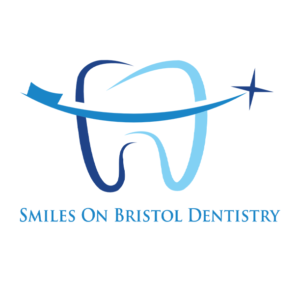Protecting your health has to be a holistic effort says Santa Ana Dentist, Dr. Kalantari of Smiles on Bristol Dentistry. Maintaining proper health is not a one stop effort, but involves getting proper nutrition, taking good care of your teeth, and also ensuring you get enough sleep every night. While under the stress of numerous responsibilities, many people let sleep fall by the wayside. However, sleep is key to overall health, and skimping on it could be putting your health at risk.
The amount of recommended sleep varies on a person-to-person basis. For the average adult, the National Sleep Foundation recommends people get no fewer than 7 hours of sleep per night. While some people claim to be comfortable running on only four to six hours of sleep, studies have shown they are often overestimating their coping ability and experience greater lack of focus and increased fatigue. Many people have also become so accustomed to not having adequate amounts of sleep, they forget what being properly rested feels like.
With seven hours being a minimum, eight hours is the average amount people are recommended to sleep, however a number of doctors will recommend patients get nine hours if possible. The average person has a sleep cycle of roughly three hours. By getting sleeping in multiples of three hours – such as nine hours—you wake up at the end of your natural sleep cycle and are left feeling more rested. Waking up in the middle of the sleep cycle, even after plenty of sleep can sometimes leave you feeling groggy as the body has to adjust to wakefulness from a deeper level of sleep.
Children and older adults have different recommended sleep requirements than adults. Older adults can be alright with just six hours of sleep, whereas children need more sleep than adults. Teenagers do best with eight to ten hours of sleep and toddlers can need up to fifteen hours of sleep. During adolescence the brain is still developing and sleep is the number one time that the brain recharges and detoxifies. Without adequate sleep during childhood, children’s brains can be negatively impacted.
According to researchers at the Brigham and Women’s Hospital, doctors studied a group of young healthy individuals. Simply by messing with their sleep schedule, some of the study participants ended up in a pre-diabetic condition until their sleep schedule was restored.
The researchers also found that people who routinely do not get enough sleep are up to 200 to 300 percent more likely to catch diseases than people who are well-rested. People who do not have enough sleep also having higher rates of obesity, heart problems, and even mental conditions such as Alzheimer’s.
Many people may also be getting enough hours of sleep but are still not getting enough rest because they suffer from a sleep condition. Most people with sleep conditions such as sleep apnea never go in for testing. Some are simply not aware, while others are put off by the idea of overnight sleep studies and CPAP treatments. A CPAP (continuous positive airway pressure) machine is a device that is worn with a mask while sleeping. It uses forced air to make sure air keeps getting to the lungs. This helps with sleep apnea because sleep apnea is a condition where due to a variety of causes, the patient does not get enough oxygen while sleeping. Some sleep apnea is caused by an issue in the brain, but most sleep apnea is caused simply because the throat becomes blocked by the jaw and the tongue during sleep. When people lie on their backs, often their jaw will settle backwards into the face which can, in certain people, cause an obstruction to the airways that prevents regular breathing.
With the significant importance of sleep, people need to make sure they are getting proper rest. Fortunately for patients who have an aversion to using a CPAP machine, most doctors now prescribe a type of soft mouth guard that is specially developed by a dentist for each individual patient. This mouth guard keeps the jaw from sliding back so that the airways remain open. Unlike the CPAP, it does not require a mask or electricity which makes it more practical for everyday wear. Because it is specially fitted, it is no less comfortable than wearing retainers at night. For mild and moderate sleep apnea, the mouth guard is just as effective as the CPAP device.
For people who struggle to fall asleep when they need to, adding physical exercise during the day can help put their body into a better rhythm. Additionally, taking time to be outdoors helps to reset the circadian rhythm so that your body is more prepared to fall asleep at proper times. Taking up yoga, meditation, or establishing a very specific before-bed routine can also help to quiet your brain and signal to your body that it is time to sleep. The human body responds very well to routine. By making a routine of actions that you only perform before bed, the body will begin to equate the routine with time for sleep.

